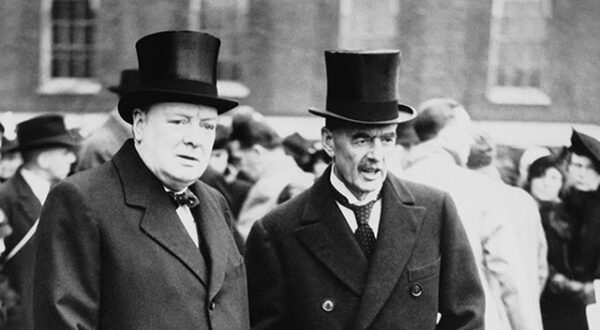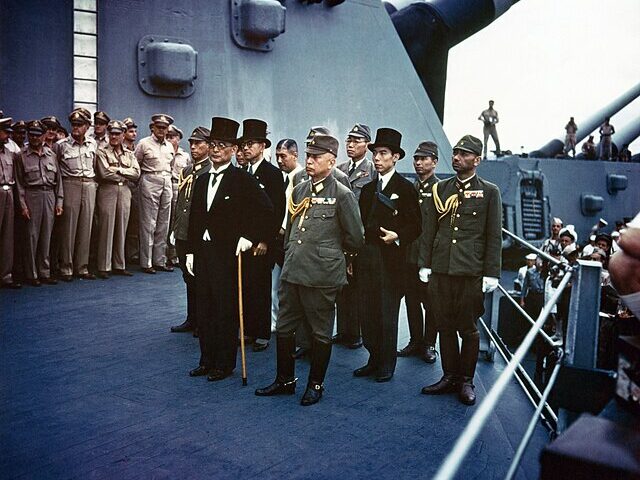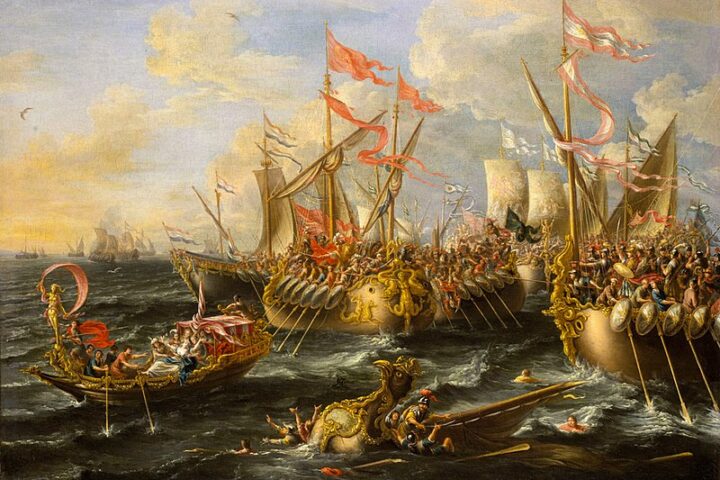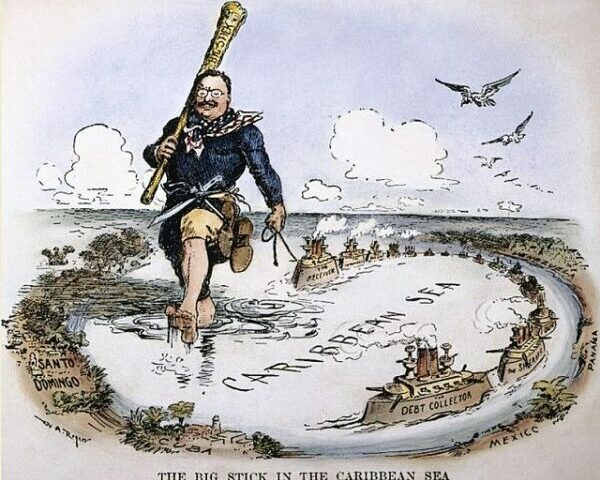September 3, 1939, the world drew battle lines, and World War II officially began following England and France’s declaration of war against the Nazis following Hitler’s invasion of Poland on September 1, 1939. The invasion was a brazen act of aggression, violating international norms…
Read MoreThe morning of September 2, 1945, dawned over Tokyo Bay with a clarity that belied the devastation of the preceding years. Aboard the battleship USS Missouri, anchored proudly among a fleet of Allied warships, representatives of the major warring powers assembled to witness the…
Read MoreThe Battle of Actium, fought on September 2, 31 BC, was a decisive naval confrontation that marked the culmination of the power struggle between Octavian (later Augustus, the first Roman Emperor) and the combined forces of Mark Antony and Cleopatra VII of Egypt. This…
Read MoreOn September 2, 1901 one of the most famous foreign policy sayings in American history came out of the mouth of one of the nation’s legendary leaders. Just two weeks before ascending to the presidency, Roosevelt outlined a distinctive foreign policy approach that would…
Read MoreIn the late summer of 1939, as Europe convulsed into war, two American physicists quietly published a paper that reshaped our understanding of the cosmos. On September 1—the very day German forces stormed into Poland—J. Robert Oppenheimer and his graduate student Hartland Snyder unveiled…
Read MoreThe Adriatic port city of Ancona, perched on Italy’s eastern coast, stood in 1173 as one of the last bastions of independence against the encroaching power of Emperor Frederick I Barbarossa. Already scarred by repeated wars with imperial forces and their Lombard allies, Ancona’s…
Read MoreOn September 1, 1715, the sun set on the longest-reigning monarch in history. “The story of Louis XIV’s death is worthy of a Shakespearean tragedy,” writes the Palace of Versailles. His health started to decline on August 10 1715 upon his return from a hunting trip…
Read MoreOn the evening of August 31, 1939, as summer drew to a close in Europe, a strange broadcast crackled over the airwaves of a small German radio station near the Polish border. The message, supposedly issued by Polish saboteurs, declared that the station had…
Read MoreOn August 31, 1538, Pope Paul III issued the papal bull Eius qui immobilis, formally excommunicating King Henry VIII of England. This act marked a critical juncture in the escalating conflict between the English monarchy and the Roman Catholic Church, signifying the profound and…
Read MoreOn August 31, 1997, one of the most beloved figures in the world lost her life, shocking a nation and stunning fans across the globe. Princess Diana, along with her companion Dodi Fayed and their driver Henri Paul, was involved in a high-speed car…
Read More










